Find Help
More Items From Ergsy search
-

Understanding Your Sexual Health - Gonorrhoea
Relevance: 100%
-

Can gonorrhoea be prevented?
Relevance: 74%
-
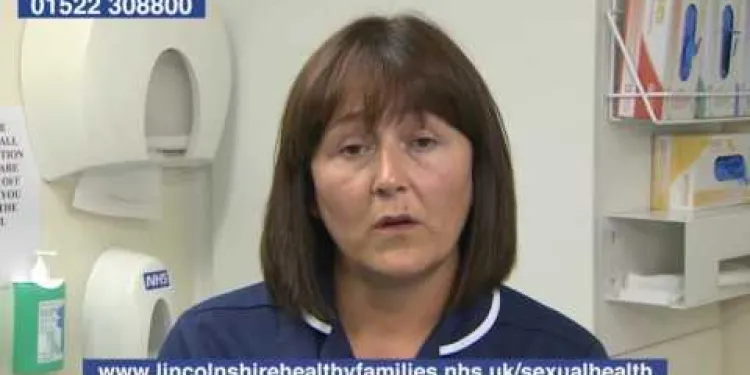
The symptoms of gonorrhoea
Relevance: 73%
-

Is there a vaccine for gonorrhoea?
Relevance: 71%
-

What is Gonorrhoea?
Relevance: 70%
-

Can gonorrhoea be asymptomatic?
Relevance: 69%
-

How is gonorrhoea diagnosed?
Relevance: 69%
-

How is gonorrhoea transmitted?
Relevance: 67%
-

What should one do if they suspect they have gonorrhoea?
Relevance: 67%
-
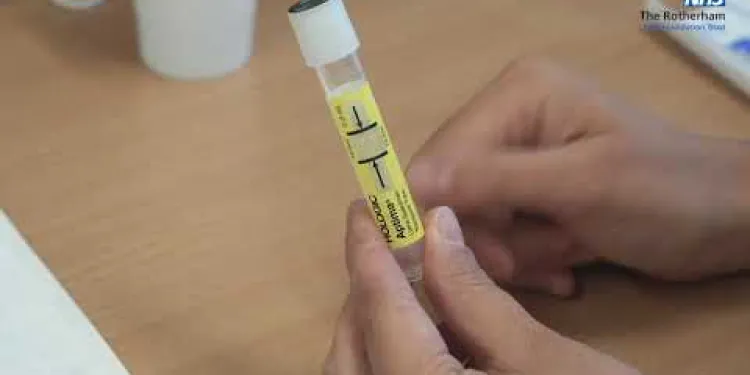
Urine test for Gonorrhoea and Chlamydia
Relevance: 65%
-

Can you still get gonorrhoea after treatment?
Relevance: 65%
-

How often should one get tested for gonorrhoea?
Relevance: 65%
-

Urine test for Gonorrhoea and Chlamydia
Relevance: 65%
-

What antibiotics are used to treat gonorrhoea?
Relevance: 64%
-

Pharyngeal swab for Gonorrhoea and Chlamydia
Relevance: 63%
-

Let's Talk Sexual Health - Home Self Testing Kits
Relevance: 63%
-

Vaginal Swab test for Gonorrhoea and Chlamydia
Relevance: 63%
-

Understanding Your Sexual Health - Pelvic Inflammatory Disease
Relevance: 62%
-

Are there any long-term effects of gonorrhoea?
Relevance: 61%
-

Why is antibiotic resistance a concern with gonorrhoea?
Relevance: 61%
-
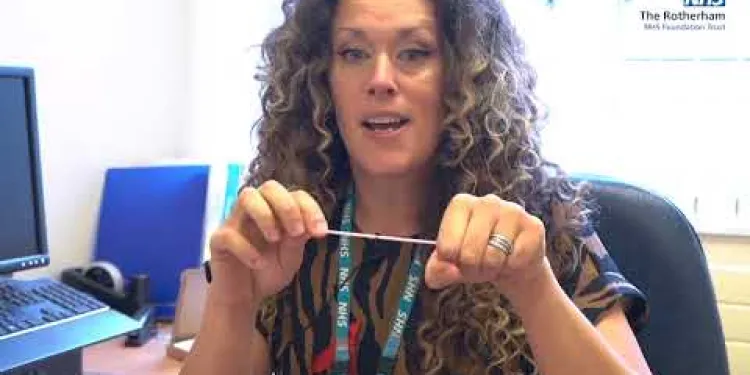
Rectal swab test for Gonorrhoea and Chlamydia
Relevance: 60%
-

Let's Talk Sexual Health - Home Self Testing Kits
Relevance: 60%
-

The Different Roles in Sexual Health and Family Planning UK
Relevance: 58%
-

Sexually transmitted infections STIs
Relevance: 57%
-

Can gonorrhoea infect areas other than the genital organs?
Relevance: 56%
-

Sexual Health - HIV Testing
Relevance: 53%
-

Understanding Your Sexual Health - Genital Warts
Relevance: 52%
-

Understanding Your Sexual Health - Herpes
Relevance: 51%
-

Is gonorrhoea treatable?
Relevance: 50%
-

NHS STI (Sexually Transmitted Infections) Information Video
Relevance: 49%
-
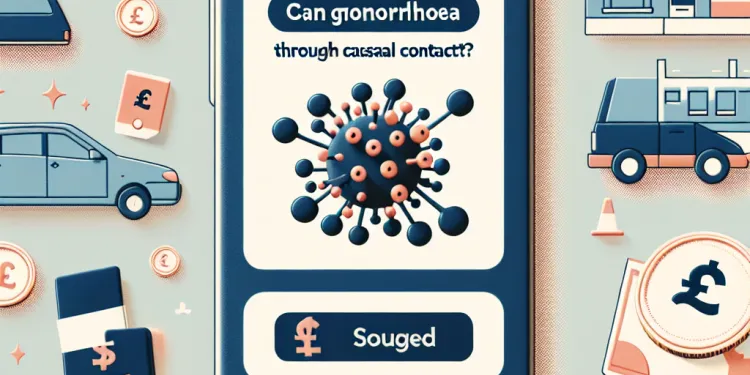
Can gonorrhoea be spread through casual contact?
Relevance: 43%
-
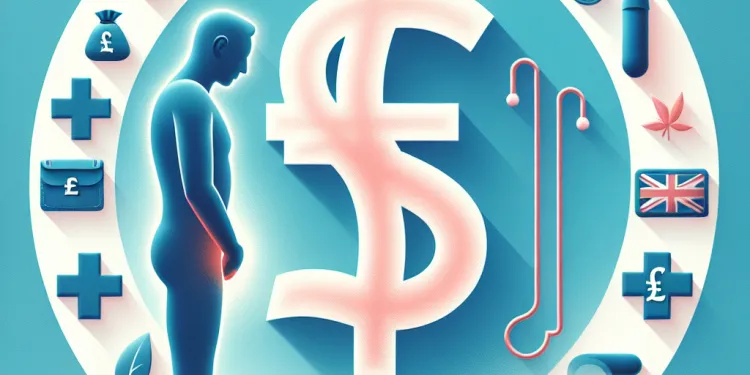
Can gonorrhoea cause complications if left untreated?
Relevance: 42%
-

Three-year limit for child sexual abuse claims to be removed
Relevance: 37%
-

What is 'the clap'?
Relevance: 35%
-

Cervical screening for women who have experienced sexual assault | NHS
Relevance: 35%
-

BSL Pelvic inflammatory disease (PID)
Relevance: 25%
-
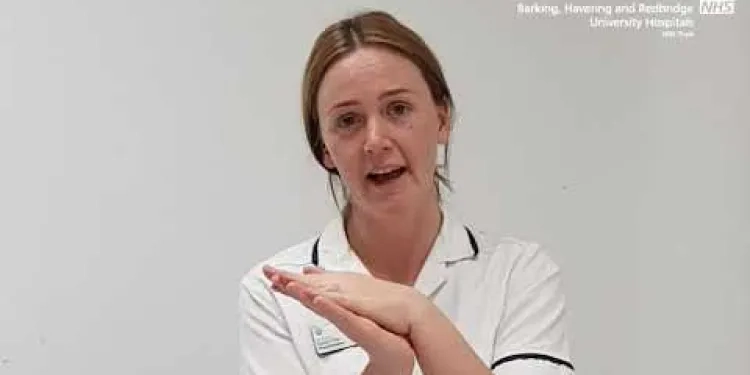
Pelvic health: prolapse
Relevance: 24%
-

What are the symptoms of gonorrhoea?
Relevance: 23%
-

Your pelvic health matters: insights from NHS clinicians
Relevance: 23%
-
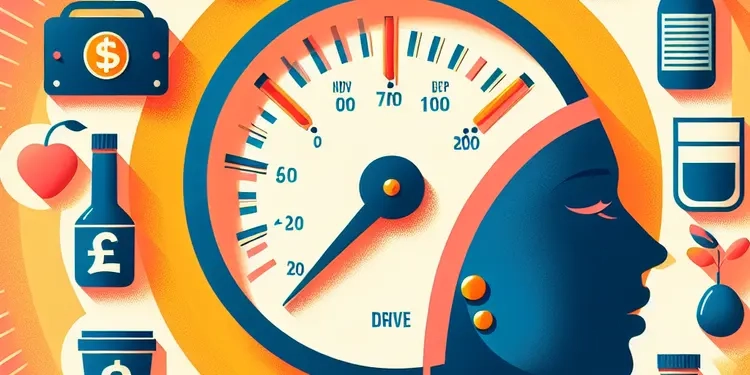
What affects my sex drive?
Relevance: 22%
Understanding Your Sexual Health - Gonorrhoea
What is Gonorrhoea?
Gonorrhoea is a common sexually transmitted infection (STI) caused by the bacterium Neisseria gonorrhoeae. It primarily affects the mucous membranes of the urethra, cervix, rectum, throat, and eyes. It is especially prevalent among sexually active individuals and can be transmitted through vaginal, anal, or oral sex.
Symptoms to Look Out For
Gonorrhoea symptoms can vary and may not always be obvious. Common symptoms in men include a painful or burning sensation when urinating, white, yellow, or green urethral discharge, and swollen testicles. Women may experience increased vaginal discharge, painful urination, and bleeding between periods. Both men and women can develop rectal infections, which may cause discomfort, discharge, and bleeding.
The Importance of Testing
Regular STI testing is crucial for sexually active individuals in the UK, especially those with new or multiple partners. Testing for gonorrhoea is usually performed through a urine sample or swabs from affected areas. Early detection and treatment can prevent serious health complications, such as pelvic inflammatory disease in women and infertility in both genders.
Treatment Options
Gonorrhoea can be effectively treated with antibiotics. The current standard in the UK involves a combination of an injection and oral medication. It is essential to complete the entire course of treatment and refrain from sexual activity until a follow-up test confirms the infection has cleared. Notify all recent sexual partners so they can be tested and treated if necessary.
Prevention Strategies
Preventing gonorrhoea involves practicing safe sex by consistently using condoms and dental dams. Regular STI screenings and open communication with sexual partners also play a significant role. Reducing the number of sexual partners and maintaining mutually monogamous relationships can further decrease the risk of infection.
Resources and Support
If you suspect you have gonorrhoea or have been exposed to it, contact your GP, local sexual health clinics, or organisations such as the NHS. These resources provide confidential testing, treatment, and counselling. Educating yourself and others about STIs fosters a healthier and more informed community.
Understanding Your Sexual Health - Gonorrhoea
What is Gonorrhoea?
Gonorrhoea is a common infection you can get from having sex. It is caused by bacteria called Neisseria gonorrhoeae. It affects parts of the body where there is mucus, like the private parts, bottom, throat, and eyes. Anyone having sex can catch it.
Symptoms to Look Out For
Gonorrhoea can show different signs, and sometimes you may not notice them. Boys might feel pain or a burn when peeing, see discharge from their private parts, or have swollen testicles. Girls might see more discharge, feel pain when peeing, or bleed between periods. Both can get infections in the bottom, causing pain, discharge, or bleeding.
The Importance of Testing
If you have sex, getting tested for infections is important, especially if you have new or many partners. Doctors can find gonorrhoea with a pee test or a swab from the body. Finding and treating it early stops bigger health problems, like causing trouble having babies later.
Treatment Options
Gonorrhoea can be cured with medicine called antibiotics. Usually, this is a shot and some pills. It's important to take all the medicine and avoid sex until a doctor says the infection is gone. Tell your recent partners so they can get checked and treated too.
Prevention Strategies
You can help stop gonorrhoea by using condoms and dental dams during sex. Check for infections regularly and talk openly with your partners about health. Stick with fewer partners to lower the chance of getting infected.
Resources and Support
If you think you might have gonorrhoea, talk to your doctor, visit a sexual health clinic, or get help from places like the NHS. They offer tests, treatment, and advice. Learning about infections and sharing what you learn helps everyone stay healthy.
Frequently Asked Questions
What is gonorrhoea?
Gonorrhoea is a sexually transmitted infection (STI) caused by the bacteria Neisseria gonorrhoeae. It can infect the genital area, rectum, and throat.
How is gonorrhoea transmitted?
Gonorrhoea is transmitted through unprotected vaginal, anal, or oral sex with an infected person. It can also be passed from a pregnant woman to her baby during childbirth.
What are the symptoms of gonorrhoea?
Common symptoms include a burning sensation when urinating, unusual discharge from the penis or vagina, and pain or swelling in the testicles. Some people may not show symptoms at all.
Can gonorrhoea be asymptomatic?
Yes, many people with gonorrhoea do not experience symptoms, which is why regular testing is important if you are sexually active.
How is gonorrhoea diagnosed?
Gonorrhoea can be diagnosed via a urine test or a swab of the affected area, such as the throat, rectum, or genital area.
Is there a cure for gonorrhoea?
Yes, gonorrhoea can be effectively treated with antibiotics prescribed by a healthcare professional.
What happens if gonorrhoea is left untreated?
If untreated, gonorrhoea can lead to serious health issues like pelvic inflammatory disease (PID) in women and epididymitis in men, which can cause infertility. It can also spread to the bloodstream and cause disseminated gonococcal infection (DGI).
How can I prevent gonorrhoea?
Prevent gonorrhoea by using condoms during sex, having regular STI screenings, and maintaining a mutually monogamous relationship with a partner who has tested negative for STIs.
Can I get reinfected with gonorrhoea after treatment?
Yes, being treated for gonorrhoea does not provide immunity. You can get reinfected if you have unprotected sex with an infected person.
How long does it take for symptoms to appear after exposure?
Symptoms of gonorrhoea can appear within 2 to 10 days after exposure, but it may take up to 30 days in some cases.
Can gonorrhoea affect other parts of the body?
Yes, gonorrhoea can infect the throat (pharyngeal gonorrhoea) and the rectum (rectal gonorrhoea), causing symptoms like sore throat or rectal pain and discharge.
Is there a test specifically for women and for men?
Tests are available for both men and women, but the type of test may vary. Women may have a swab taken from the cervix while men typically provide a urine sample.
Is it necessary to inform my partner if I test positive for gonorrhoea?
Yes, informing your partner is crucial as it allows them to get tested and treated to prevent further spread of the infection.
Where can I get tested for gonorrhoea in the UK?
You can get tested at sexual health clinics, through your GP, or at many community clinics across the UK. Some services also offer free home testing kits.
Is gonorrhoea treatment free in the UK?
Yes, treatment for gonorrhoea is free through the NHS in the UK.
What is gonorrhoea?
Gonorrhoea is a sickness. It can make you feel unwell. It is caused by germs.
Helpful Tips:
- Ask a doctor or nurse if you want to know more.
- Look at simple health books with pictures.
- You can ask someone you trust to help explain it.
Gonorrhoea is an infection you can get from having sex. It is caused by tiny germs called bacteria. These bacteria are named Neisseria gonorrhoeae. Gonorrhoea can make you sick in your private parts, bottom, and throat.
How do you get gonorrhoea?
Gonorrhoea is a sickness you can get from sex without a condom. This includes vaginal, anal, or oral sex with someone who has the sickness. A pregnant woman can also give it to her baby when the baby is born.
What signs show you might have gonorrhoea?
Gonorrhoea is a sickness you can catch. Here are some things to watch for:
- Pain when you pee
- Unusual discharge from private parts
- Sore throat
- Pain in the tummy
If you notice these signs, you should talk to a doctor.
Ask an adult to help you or use picture books and talking apps to understand more.
When you go to the toilet to pee, it might feel like it burns. If you see anything strange coming from your private parts, you should talk to an adult or doctor. Boys might feel pain or see that their testicles are bigger than usual. But sometimes, people feel completely fine and don't notice anything wrong.
Can you have gonorrhoea without knowing it?
Yes, sometimes people with gonorrhoea don't feel sick or have signs. It's important to get checked if you think you may have it.
Ask a doctor or nurse to help you. They can do a simple test to check.
Yes, lots of people with gonorrhoea do not feel sick or see signs. This is why it is important to get tested often if you have sex.
How do doctors know if you have gonorrhoea?
Doctors can find out if you have gonorrhoea by doing some tests. Here is how:
- Test at the doctor: You might go to the doctor, and they will take a sample from your body, like a bit of pee or a swab from a private area.
- Home test kit: You can also use a special kit at home to collect a sample and send it to a lab.
- Help from others: Ask someone you trust, like a parent or teacher, to help you understand the instructions or go to the doctor with you.
It is important to do the test to make sure you get the right medicine if you need it.
Doctors can find out if you have gonorrhoea by doing a wee test or by using a cotton bud to take a sample from the sore area. This could be your throat, bottom, or private parts.
Can you make gonorrhoea go away?
Yes, doctors can give you medicine to cure gonorrhoea. The medicine is called antibiotics.
What happens if gonorrhoea is not treated?
If gonorrhoea is not fixed, it can cause big health problems. It might make it hard for people to have babies later. It can also make you feel really sick.
Here are some ways to help:
- Go to the doctor as soon as you feel sick.
- Take all the medicine the doctor gives you.
- Ask a friend or family member to help you remember your medicine.
If gonorrhoea is not treated, it can make you very sick. For women, it can cause a disease called pelvic inflammatory disease (PID). For men, it can cause a problem called epididymitis. Both of these can make it hard to have children later. Gonorrhoea can also get into the blood and make you sick all over your body.
Here are some tips to help:
- Talk to a doctor if you feel sick.
- Use easy-to-read health websites for more information.
- Ask someone you trust to help explain the information.
How can I stop gonorrhoea?
Gonorrhoea is an infection you can get from another person. Here are ways to help stop it:
- Use a condom when you have sex. This can help keep you safe.
- Talk to your partner. Make sure they are safe too.
- Go to the doctor for regular check-ups. This helps catch problems early.
If you need more help, talk to your doctor or nurse. They can give you good tips and support.
Here’s how to stop gonorrhoea:
- Use a condom when you have sex.
- Go for regular health checks for STIs (sexually transmitted infections).
- Be with one partner who does not have any STIs.
Can I catch gonorrhoea again after taking medicine?
Yes, you can catch gonorrhoea again even after you have been treated. It is important to be careful and follow these tips to stay healthy:
- Use a condom when having sex.
- Ask your partner to get tested too.
- If you have questions, ask a doctor or nurse for help.
Using simple language and getting help when you need it can keep you safe.
It is possible to get gonorrhoea again after treatment. You can catch it if you have sex without a condom with someone who has it.
When will I feel sick after I catch germs?
It can take a few days before you feel sick after germs get into your body.
When someone gets gonorrhoea, signs might show up 2 to 10 days later. But sometimes it can take up to 30 days to see signs.
Can gonorrhoea hurt other parts of the body?
Gonorrhoea is an illness. It is usually known to affect private parts. But it can also hurt other body parts.
Gonorrhoea can affect your:
- Throat
- Eyes
- Joints (places where bones meet)
- Blood
If you think you might have gonorrhoea, it is important to see a doctor.
Supportive tools:
- Ask someone you trust to help you understand.
- Use simple language to talk about it.
Yes, gonorrhea can make you sick in your throat or in your bottom. If it hurts to swallow or if your throat feels sore, you might have it in your throat. If it hurts when you go to the toilet or if you see unusual stuff coming out, it might be in your bottom.
If you need help, try using picture books or ask someone you trust to help explain more. A doctor can also help and answer your questions.
Are there tests just for women or just for men?
Both men and women can get tests. The tests may be different for each. Women might get a swab from the cervix. Men usually give a pee sample.
Do I need to tell my partner if I have gonorrhoea?
If a doctor says you have gonorrhoea, it is important to tell your partner. This is because they might also have it and need to see a doctor.
You can get help from a nurse or doctor to tell your partner. They can help you find the right words to say.
Yes, it's important to tell your partner. This way, they can get tested and get medicine if they need it. This will stop the infection from spreading to more people.
Where can I get tested for gonorrhoea in the UK?
You can get tested for gonorrhoea in many places in the UK. Here are some places you can go:
- Doctor's Office (GP): You can ask your doctor for a gonorrhoea test.
- Sexual Health Clinic: These clinics can test you for gonorrhoea and other infections. They can also give you advice and help.
- Reproductive Health Clinic: These clinics can help you with tests and information.
If you need more help, you can use these tools:
- Speak to a nurse or doctor. They can explain things clearly.
- Use online maps to find the nearest clinic or doctor.
It's important to get tested if you think you might have gonorrhoea. Doctors and nurses are there to help you.
You can get a test at special health clinics for sexual health, from your family doctor, or at many community clinics in the UK. Some places also give you free test kits to use at home.
Can you get free treatment for gonorrhoea in the UK?
If you live in the UK, you can get free treatment for gonorrhoea from clinics called sexual health clinics or GUM clinics.
Here are some tips to help you:
- Visit a sexual health clinic near you. They will treat you for free.
- You do not need to pay for prescriptions for gonorrhoea treatment at these clinics.
Yes, you can get free treatment for gonorrhoea from the NHS in the UK.
Useful Links
This website offers general information and is not a substitute for professional advice.
Always seek guidance from qualified professionals.
If you have any medical concerns or need urgent help, contact a healthcare professional or emergency services immediately.
Some of this content was generated with AI assistance. We’ve done our best to keep it accurate, helpful, and human-friendly.
- Ergsy carfully checks the information in the videos we provide here.
- Videos shown by Youtube after a video has completed, have NOT been reviewed by ERGSY.
- To view, click the arrow in centre of video.
- Most of the videos you find here will have subtitles and/or closed captions available.
- You may need to turn these on, and choose your preferred language.
- Go to the video you'd like to watch.
- If closed captions (CC) are available, settings will be visible on the bottom right of the video player.
- To turn on Captions, click settings .
- To turn off Captions, click settings again.
More Items From Ergsy search
-

Understanding Your Sexual Health - Gonorrhoea
Relevance: 100%
-

Can gonorrhoea be prevented?
Relevance: 74%
-

The symptoms of gonorrhoea
Relevance: 73%
-

Is there a vaccine for gonorrhoea?
Relevance: 71%
-

What is Gonorrhoea?
Relevance: 70%
-

Can gonorrhoea be asymptomatic?
Relevance: 69%
-

How is gonorrhoea diagnosed?
Relevance: 69%
-

How is gonorrhoea transmitted?
Relevance: 67%
-

What should one do if they suspect they have gonorrhoea?
Relevance: 67%
-

Urine test for Gonorrhoea and Chlamydia
Relevance: 65%
-

Can you still get gonorrhoea after treatment?
Relevance: 65%
-

How often should one get tested for gonorrhoea?
Relevance: 65%
-

Urine test for Gonorrhoea and Chlamydia
Relevance: 65%
-

What antibiotics are used to treat gonorrhoea?
Relevance: 64%
-

Pharyngeal swab for Gonorrhoea and Chlamydia
Relevance: 63%
-

Let's Talk Sexual Health - Home Self Testing Kits
Relevance: 63%
-

Vaginal Swab test for Gonorrhoea and Chlamydia
Relevance: 63%
-

Understanding Your Sexual Health - Pelvic Inflammatory Disease
Relevance: 62%
-

Are there any long-term effects of gonorrhoea?
Relevance: 61%
-

Why is antibiotic resistance a concern with gonorrhoea?
Relevance: 61%
-

Rectal swab test for Gonorrhoea and Chlamydia
Relevance: 60%
-

Let's Talk Sexual Health - Home Self Testing Kits
Relevance: 60%
-

The Different Roles in Sexual Health and Family Planning UK
Relevance: 58%
-

Sexually transmitted infections STIs
Relevance: 57%
-

Can gonorrhoea infect areas other than the genital organs?
Relevance: 56%
-

Sexual Health - HIV Testing
Relevance: 53%
-

Understanding Your Sexual Health - Genital Warts
Relevance: 52%
-

Understanding Your Sexual Health - Herpes
Relevance: 51%
-

Is gonorrhoea treatable?
Relevance: 50%
-

NHS STI (Sexually Transmitted Infections) Information Video
Relevance: 49%
-

Can gonorrhoea be spread through casual contact?
Relevance: 43%
-

Can gonorrhoea cause complications if left untreated?
Relevance: 42%
-

Three-year limit for child sexual abuse claims to be removed
Relevance: 37%
-

What is 'the clap'?
Relevance: 35%
-

Cervical screening for women who have experienced sexual assault | NHS
Relevance: 35%
-

BSL Pelvic inflammatory disease (PID)
Relevance: 25%
-

Pelvic health: prolapse
Relevance: 24%
-

What are the symptoms of gonorrhoea?
Relevance: 23%
-

Your pelvic health matters: insights from NHS clinicians
Relevance: 23%
-

What affects my sex drive?
Relevance: 22%


